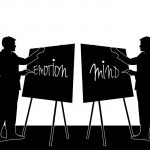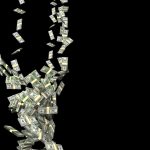
What could be the practical value (to the world of business) of an overview of the neuroscience of creativity/innovation? If nothing else – I hope to illustrate what a holistic phenomenon this is and encourage initiatives that could enhance cognition, creativity and innovation.

“Big achievements of the behavioural revolution has been to get economists as a whole to back away a bit from grand theorising, and to focus more on empirical work and specific policy questions.” The Economist (R.A.)

I believe most people in business would say they would like to be part of a team that has a ‘can do’ (optimistic) attitude. Presumably, they recruit and mentor with this in mind. Joshua Wolf Shenk in his book Lincoln’s Melancholy and Gail Saltz M.D. the author of The Power of Different give us a few examples of individuals with pessimistic points of view that seem to have made a difference.

In addition to affecting how a brain ‘thinks’ mindfulness has also been shown to have actual physical effect on brain structure. For some orientation I refer you back to Your Brain: By the Numbers. The following reinforces the fact that reported improvements are not because people are just feeling better but because they are spending time relaxing.

While it is generally agreed that anyone who practices mindfulness can ‘feel’ that it works – there is often a question in one’s mind especially a ‘business brain’ - is there a basis in fact/science? This is an issue I touched on in an earlier article (Daniel Kahneman Meets Dalai Lama) but I believe it warrants more attention.

Aug 22, 2016 ~ Written by: W.B. “Bud” Kirchner “The real measure of your wealth is how much you’d be worth if you lost all your money.” – Author Unknown I trust the preceding blog (Financialization As A Symptom) did an adequate job of illustrating – we have a problem(s). Accept what you will of...

August 16, 2016 ~ Written by: W.B. “Bud” Kirchner “They who are of the opinion that Money will do everything, may very well be suspected to do everything for Money”. – George Savile, Complete Works, 1912 “When the rate of return on capital exceeds the rate of growth of output and income, as it did...
What could possibly come from a meeting between an individual who is one of only two psychologists to win the Nobel Prize for Economics and one of the most introspective spiritual (Buddhist) and political (Tibetan) leaders?







